Emma Stone talks equal pay, fake news and why she always splits the bill
Oscar-winning actress Emma Stone holds (centre) court once again in Battle Of The Sexes, the big-screen retelling of the legendary 1973 showdown between Billie Jean King and Bobby Riggs. Here, she talks to co-star Sarah Silverman about what's changed since then, and what hasn't...
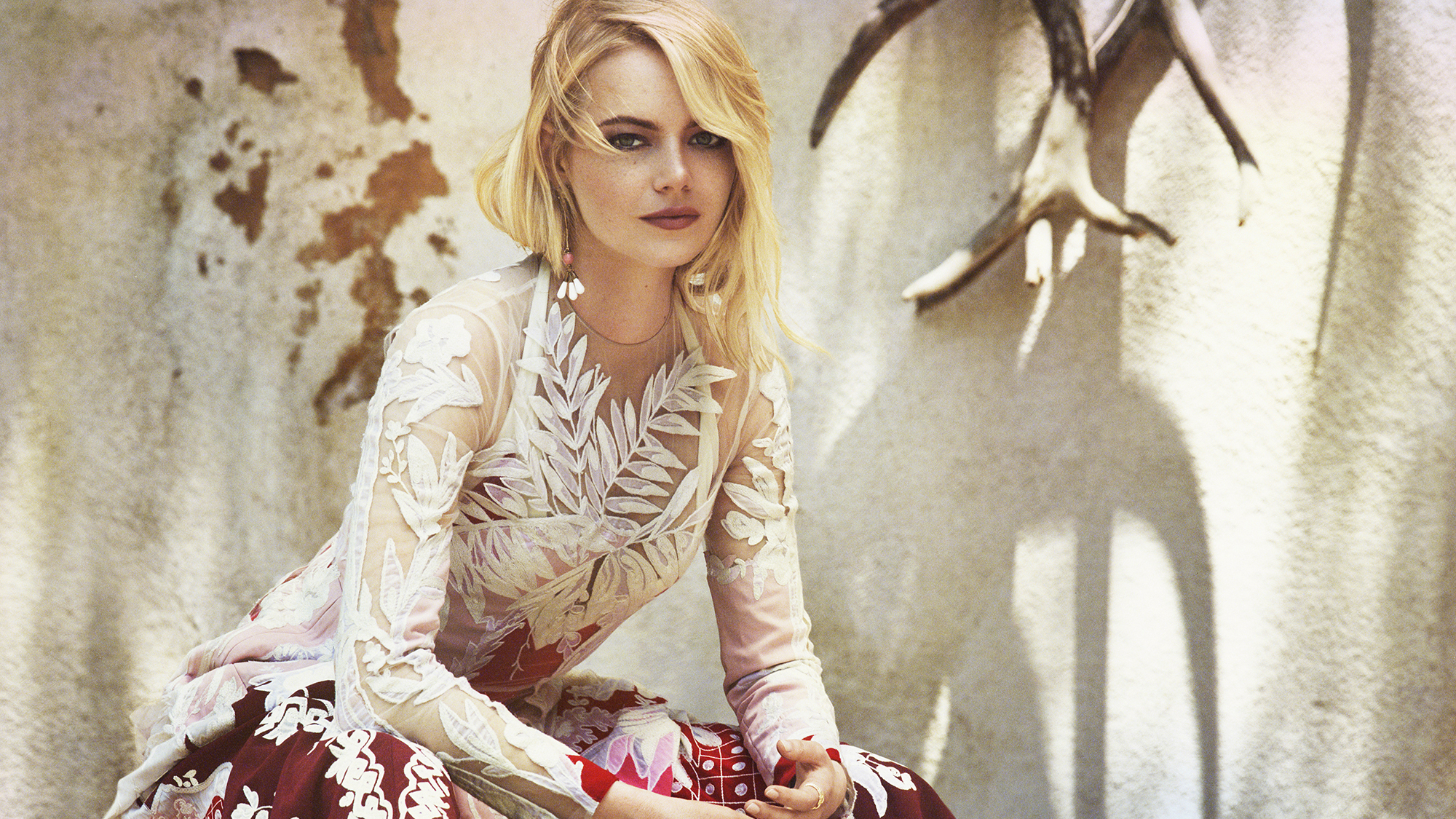
Oscar-winning actress Emma Stone holds (centre) court once again in Battle Of The Sexes, the big-screen retelling of the legendary 1973 showdown between Billie Jean King and Bobby Riggs. Here, she talks to co-star Sarah Silverman about what's changed since then, and what hasn't...
Do I want to do a Q&A with Emma Stone for Marie Claire? Fuck yeah, I do. I have enjoyed the Emma Stone of it all for a while now. Since Superbad, maybe? But she really grabbed me at the 2012 Academy Awards. After that, I was totally smitten. She was in a red dress with a big bow, presenting an award with Ben Stiller for visual effects, and her comedy skills were tight.
Stiller and Jonah Hill [her co-star in Superbad] were perfect straight men – parts usually reserved for women while the male comic sparkles. With no crazy costume or visual joke, and far beyond the comic skill set of the average actor, she killed it. The writing was adorable, but the performance [where she milked her first appearance as a presenter] was everything. As a comedy snob, I was officially wowed. That’s when the name Emma Stone was forever embedded in my bean.
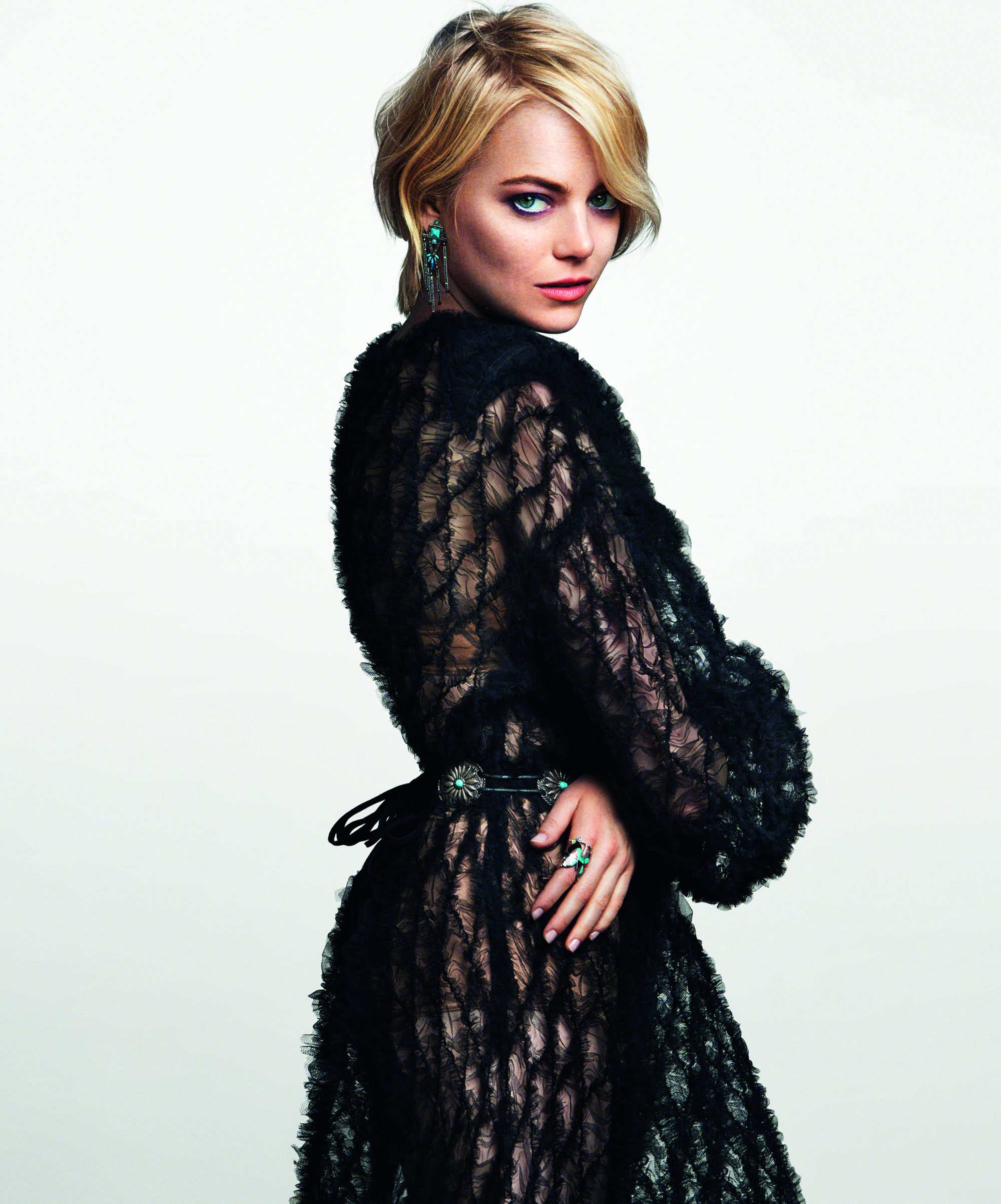
Then, last spring, I got to work with her [Silverman plays women’s tennis promoter Gladys Heldman] on Battle Of The Sexes. All of my scenes were with Stone, and I found out more good news: this lil’ mama isn’t just uber-talented, she is also the loveliest, most thoughtful, real-deal person on either side of the Mississippi.
The crew felt like a travelling carnival. From the hair and make-up department to the director of photography, all had come to this movie from La La Land. But it wasn’t like a clique; it was like a family, travelling with Stone from movie set to movie set. One that says, ‘Hey, come join us! We’re a band of misfits, and you belong!’
I’ve heard the story of how, in 2004, a 14-year-old Stone did a PowerPoint presentation for her parents to explain why they should all move from Arizona to Los Angeles, so she could be an actress. It makes perfect sense. They did the right thing. If you know Stone at all (and, truthfully, that’s exactly how much I know her), you know that there is no other place she should be.
She loves movies – watching them, making them and just wholly every part of them. Look, acting is fun, but there’s a lot of sitting around, and this woman seems to devour the entire process with wild stimulation and immense gratitude. Quite frankly, that was inspiring to be adjacent to.
Marie Claire Newsletter
Celebrity news, beauty, fashion advice, and fascinating features, delivered straight to your inbox!
I’ll describe Stone the way my mother used to describe Johnny Carson: she’s interesting because she’s interested. This is Stone. I once heard my sister tell her daughters, when they complained that they were bored, ‘Only boring people get bored.’ Emma Stone, my friends, never gets bored.
Sarah Silverman: Emma Jean Stone took tennis lessons from Billie Jean King. Did you mention that same middle name fun fact to her?
Emma Stone: I did bring it up with her pretty early on, and I think that bonded us quickly. Our tennis coach, Vince Spadea, who was also [co-star] Steve [Carell’s] double, gave me tennis lessons every day once we were actually into it. But I met Billie Jean a couple of months before we started shooting. We went to this court in New York, and she realised no one had ever really played catch with me, or monitored my hand-eye coordination. I turned into a human golden retriever, and she would just throw the balls at me. We had to start simply. So that was what my tennis lesson was like with her. It was playing catch.
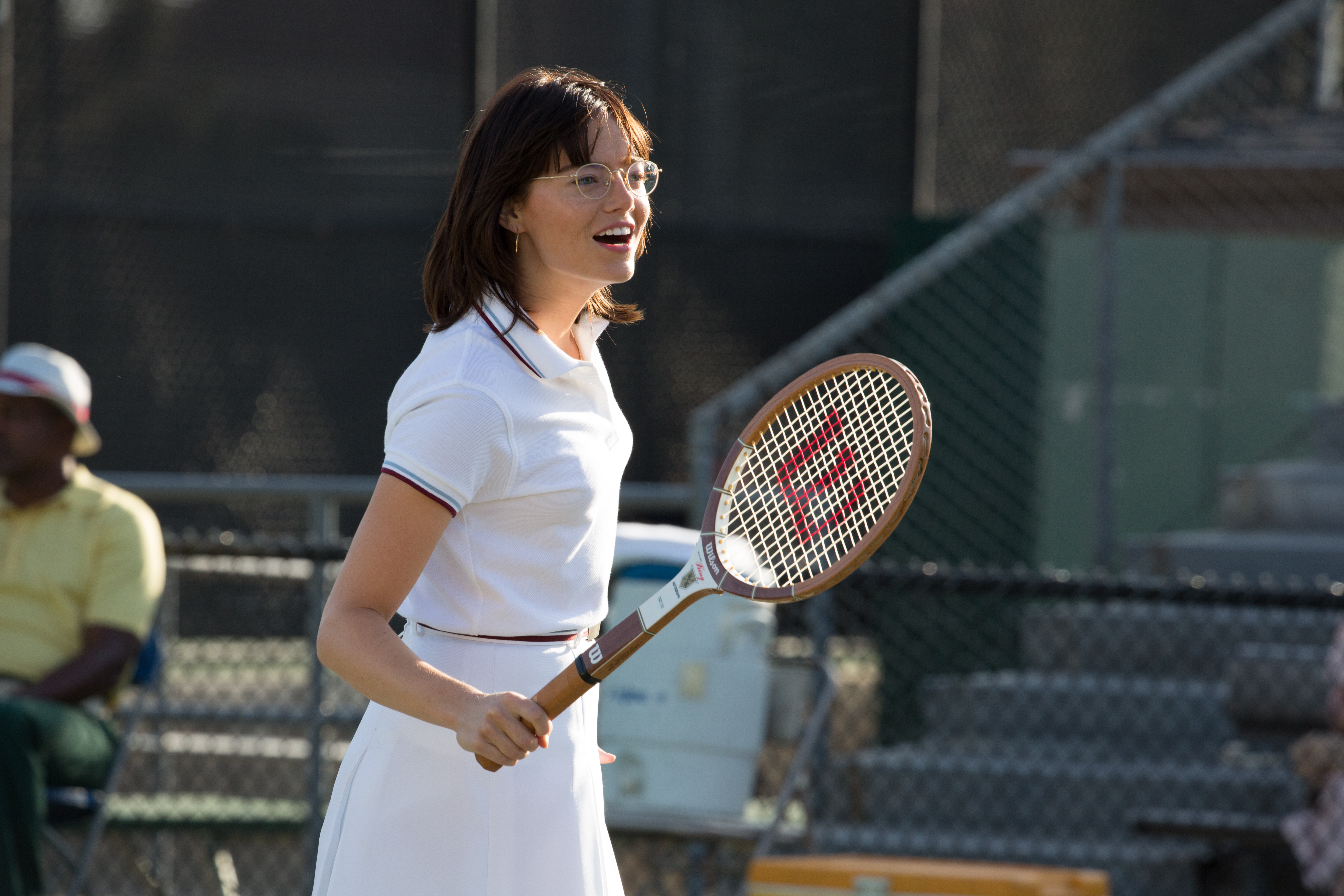
SS: I feel that you truly inhabited her. Was there some kind of exterior element for you, like when you put the glasses on, or was there one little thing?
ES: There were a couple. I had never really considered the physicality of a person or of a character. Maybe because I hadn’t played a real person – there wasn’t someone who looked a specific way or whose hands moved in a certain manner. So that was what I focused on more than anything: building from the outside in. I said to Billie Jean, ‘I’m working with a voice coach every day,’ and she was like, ‘Why? I have the same voice.’ And I said, ‘You sound the same now, but back then you had this kind of high voice. You were much quieter.’ And she said, ‘Well, we had to be. The only way we could get our point across as women was to move gently. We couldn’t say something loudly and forcefully, ever. You would scare people off.’ That was very interesting.
SS: Now that she’s older, physically and emotionally, everything about her is different in that she’s just totally living out loud. Even though she took a giant, outspoken step forward, she still concealed so much from herself and the world. [King felt she could not reveal she was a lesbian in the 70s. Now 73, she was outed in 1981 after her partner sued her for palimony.]
ES: Absolutely. Billie Jean loves to talk, and I talked to her a lot. But she was concerned at the end of the shoot. She was like, ‘We didn’t speak that much on the phone. How did you get to know me if we didn’t chat that much?’ And I was like, ‘Because I got to know a different version of you. I got to know you at 29.’ She’s had all these wild and unimaginable things happen to her, and she’s displayed incredible resilience. But there was so much that was still kind of inside.
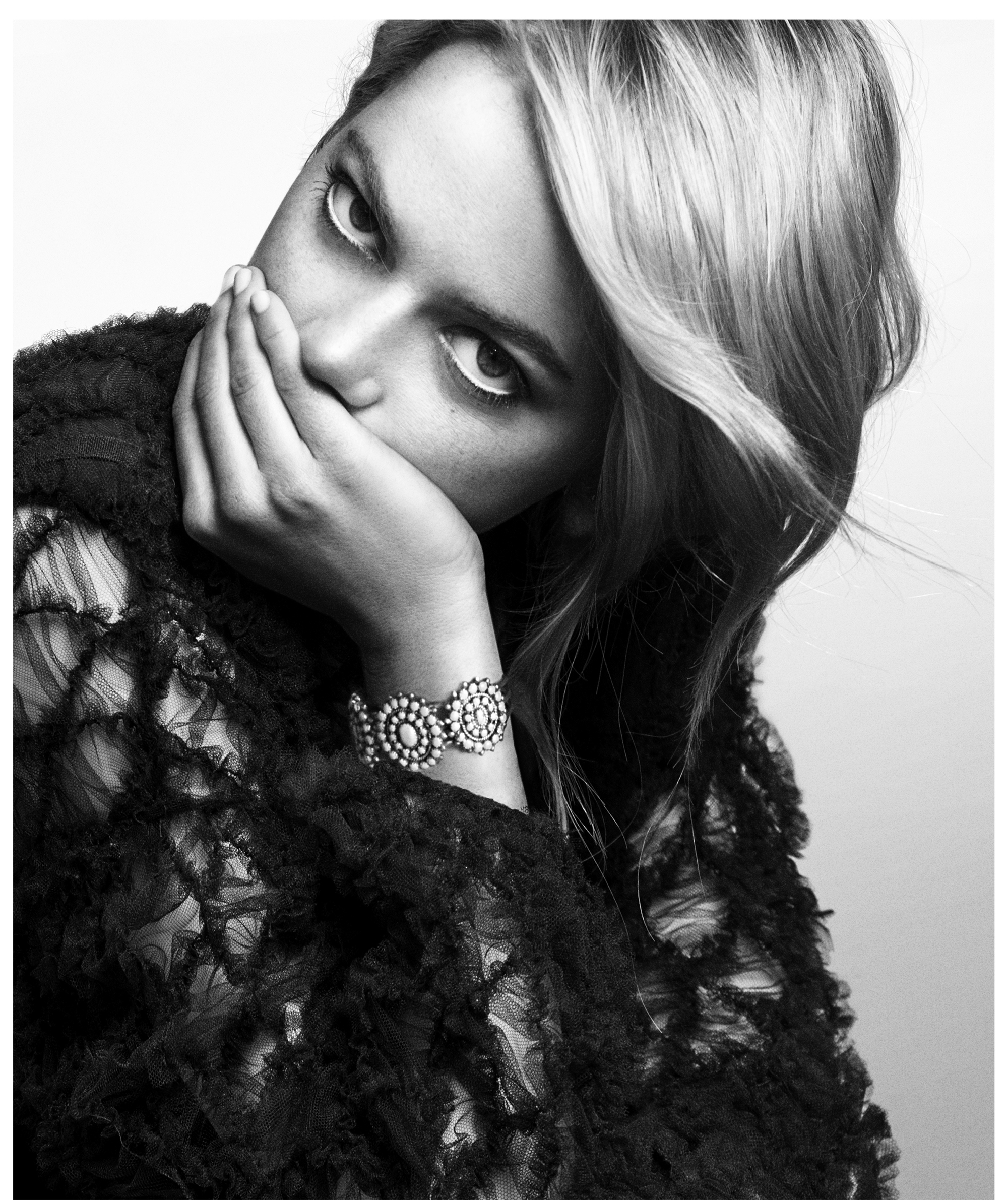
SS: Even if she’s talking about what it was like when she was 29, it’s from a perspective that didn’t exist at that time.
ES: Completely. She was really open about how scary that time was, and she was like, ‘I just wanted my twenties and thirties to be over.’ When you’re holding so much in – I mean, I can relate to this – you keep a lot of your life private in a certain way. When you’re still discovering who you are, the pain that’s associated with all of that, with finding out what you’re going to be in the world, you don’t know. There was a lot that she couldn’t explain until it was done for her in this horrific way, and then she rose from it in the most beautiful manner.
SS: Sexism is alive and well in 2017, and talented women are still judged by the way they look and are paid less for the same work, just like she was. [In 1973, King succeeded in her fight for equal pay in tennis.] You never hear, ‘You’re a working dad. How do you balance it all?’
ES: Just to bring you quickly back to Billie Jean, looking at old interviews, the fact that hasn’t changed is sad. Every question for her was: ‘When are you going to give up tennis and have kids?’
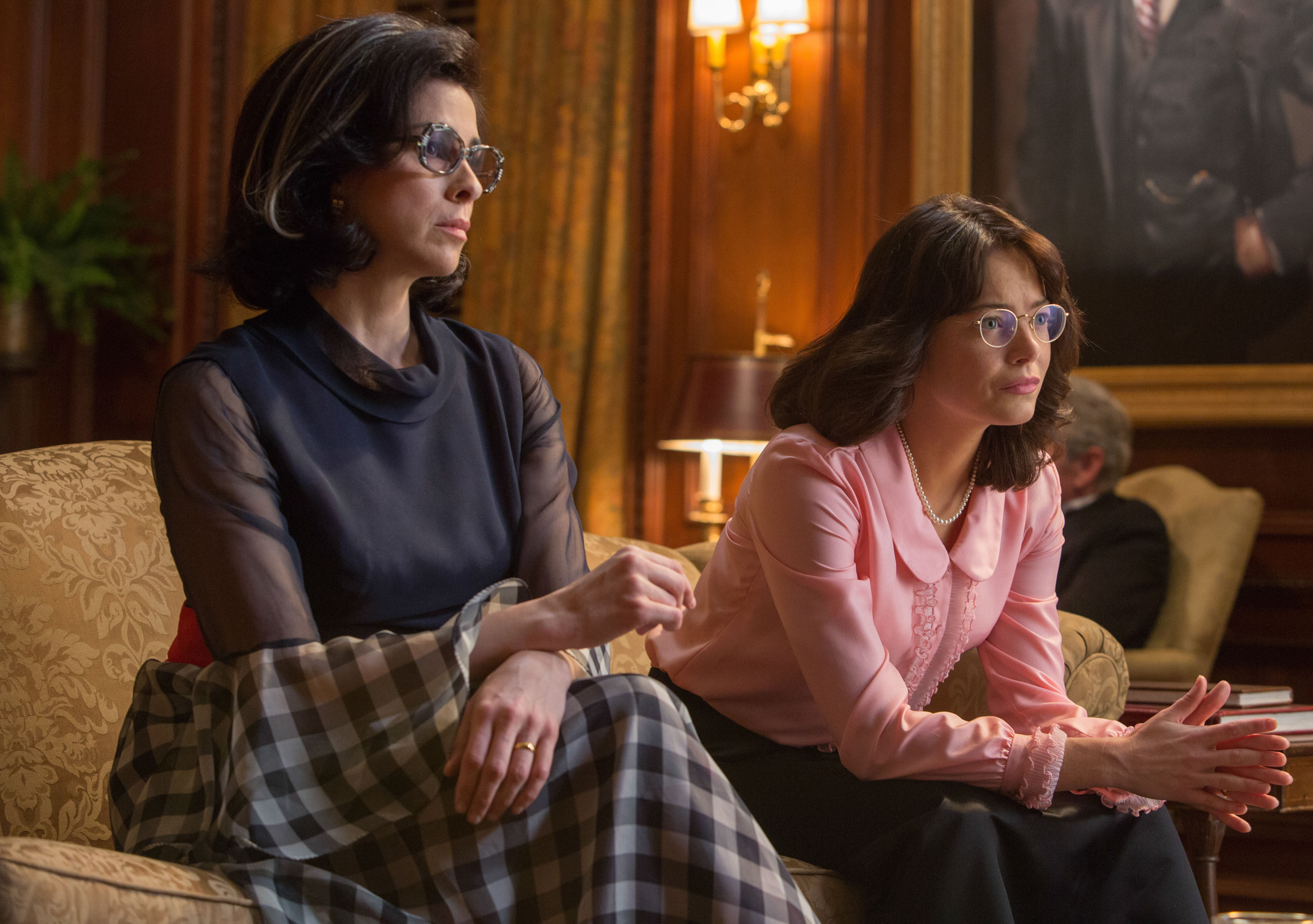
SS: You’ve recently been filming Maniac [Netflix’s Cary Fukunaga–directed dark comedy starring Stone and Jonah Hill]. Is that a limited series?
ES: It’s ten episodes. Working with the characters was a bunch of fun.
SS: Is there another nonfictional person you’d like to play? You’re doing Cruella [Disney’s live-action film based on the villain in 101 Dalmatians].
ES: I technically just played a real person [Abigail Masham, Baroness Masham in The Favourite, about intrigue in Queen Anne’s court, out next year] in the movie I just got back from a couple of days ago.
SS: Of the characters you’ve played, which one has taught you the most about yourself?
ES: The role of Billie Jean was a bit of a game-changer. I am very nervous to communicate my opinions most of the time, especially publicly. I second-guess myself a lot, and I’m prone to anxiety. She is so direct and confident in the way that she communicates what she believes is right. To be able to step into that for a while was a pretty powerful experience. It’s something that I still don’t feel entirely comfortable with, but it was also one of the great parts about playing her. That’s one of my big personal struggles.
SS: That makes me so happy because, one, it’s on topic. But also because it would be a great thing for you, like King, to accept your power and role in this world. All right, next question. Are you living in New York?
ES: Yes. Right now, I’m renting a house there [while filming Maniac]. I don’t know where I’m going to live for the rest of my life. That’s an interesting conundrum.
SS: Are there places you love in New York that make your heart grow and feel swoony?
ES: I do love it. I’m looking to reinvigorate my relationship with the city. I go to the same restaurants and pretty much stay in the same two-block radius. I work in different places a lot of the time, and it just makes me feel very comforted to be within the same two blocks.
SS: Going back to equality, I know a comic who made a point like, ‘I’m glad that there isn’t equal pay, because guys have to pay for dinner.’ He was being silly, but I explained to him that it wouldn’t be the case if women were paid equally. It’s because women have a handicap in fairness that the tradition exists. But people have a hard time understanding that. Let’s say, when you are in a relationship, do you pay, or is it just kind of whoever has their wallet out?
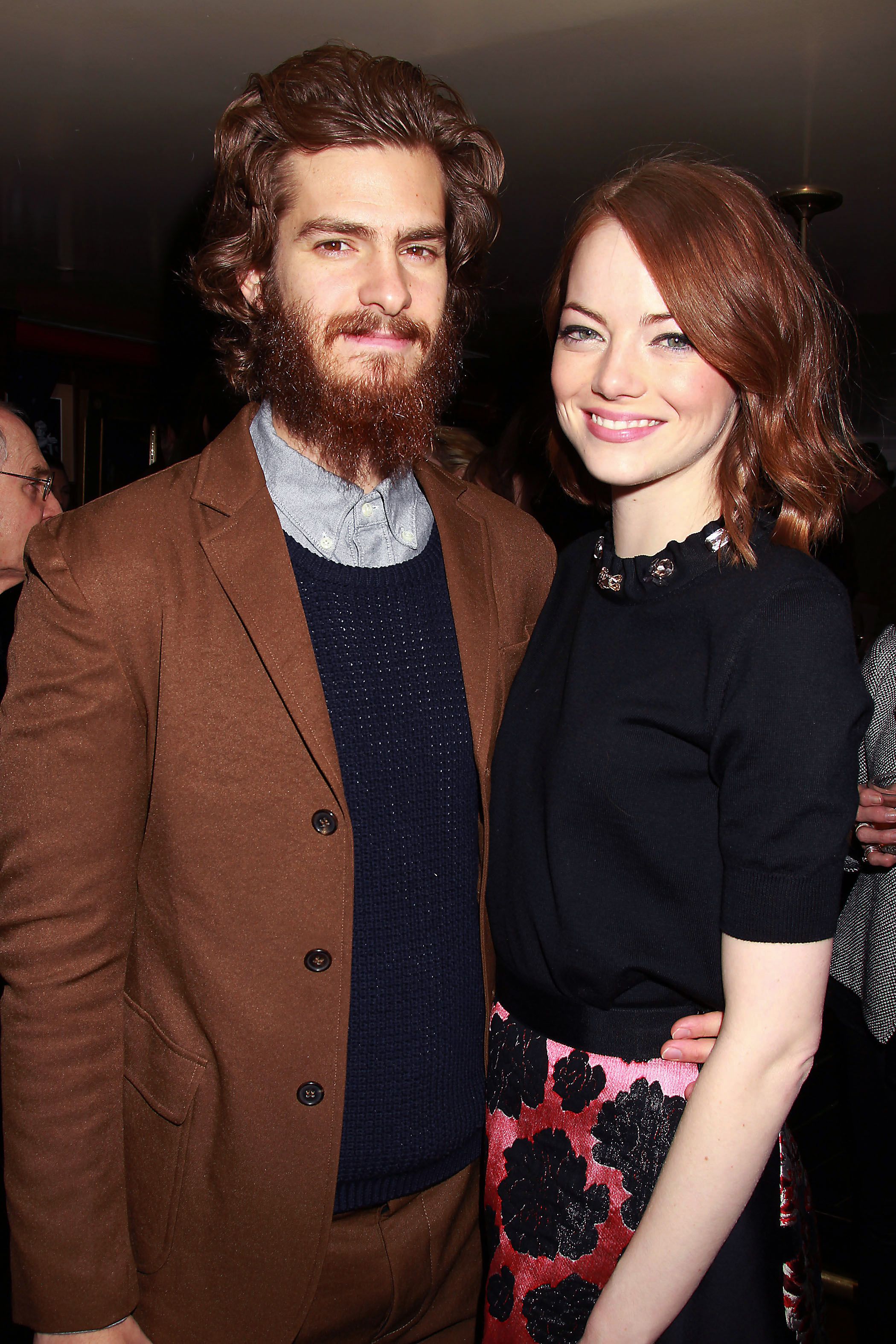
ES: I am always in situations where I’ve proceeded to want to pay for things, because I’m lucky enough to be able to. But I always at least split or offer to split. Do you?
SS: Yeah, every time.
ES: Do you think it’s chivalrous to do that?
SS: No, I have no attachment to that in terms of paying for stuff. I guess if I was in a relationship and noticed I kept paying, I’d be like, ‘What the fuck?’ But when I’m in a relationship, I pay half the time and he’ll pay half the time. I mean, we don’t measure; it’s just like if I was out with a friend. I don’t find romance in paying. I find romance in romance.
ES: Right, me too. And you make a good point when you’re talking about men paying for dinner, and that being a symptom of what happened with women and being paid. If you’re not able to sustain your life in the same way as a man in the exact same position can, it’s asinine.
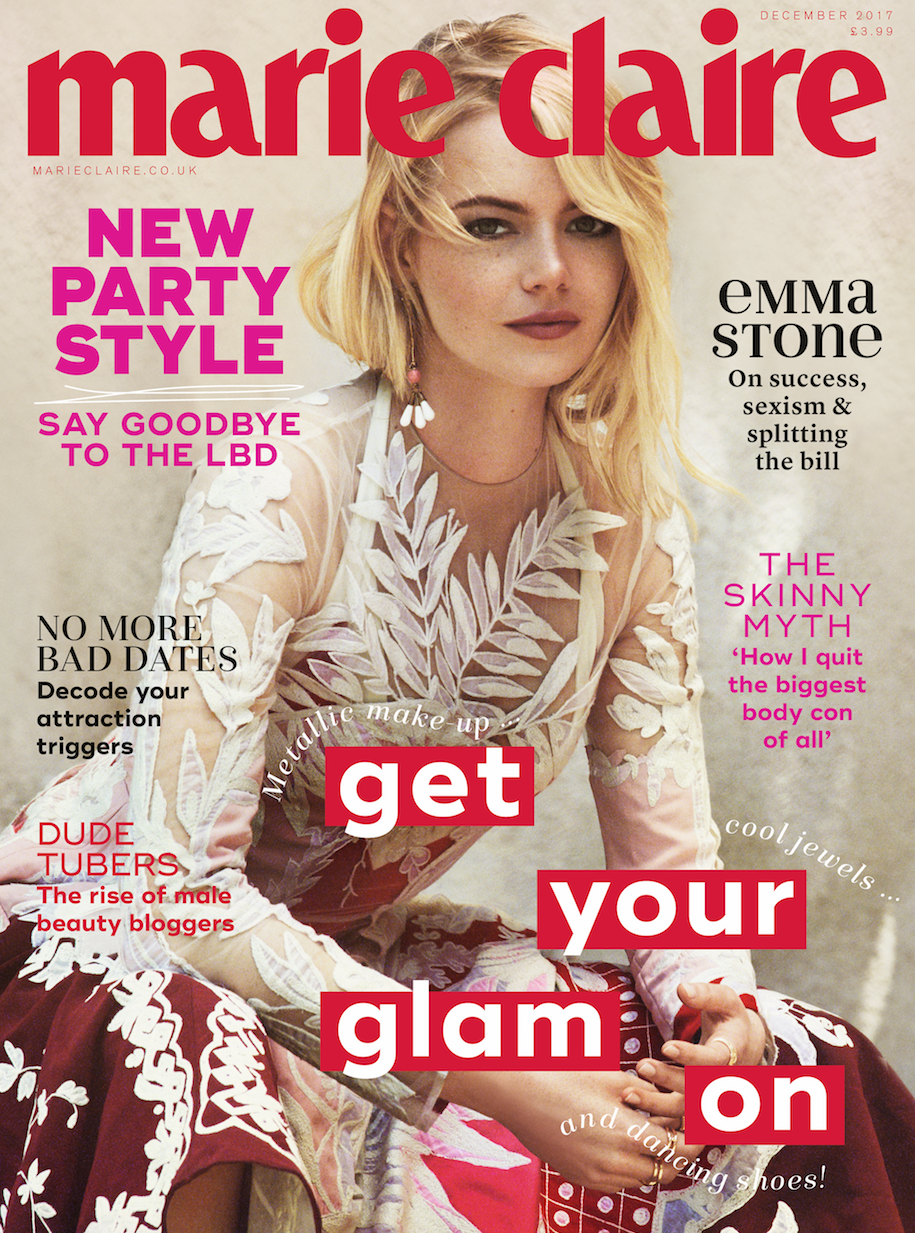
SS: It’s funny, because it’s something that obviously you care about, and I care about, but another symptom of it is that you, as a woman, get asked those questions in all these interviews, whereas men don’t.
ES: The questions we’re asked are, ‘What’s it like to get older?’ Or if you are paid equally, ‘How does it feel to be part of the lucky few who are paid equally?’ I did a panel with Amy Adams when a journalist asked me this question, and [Amy] basically said, ‘This is part of the problem. You’re asking us women to answer these questions for you, instead of asking the people who need to make the change.’ It’s one thing to ask us, but lawmakers need to also feel that way. Everybody needs to feel that way. There is so much power to our voices. We must speak out. That’s something that I struggled with in the past, but it is very hard not to feel galvanised right now politically or consciously. The world is falling apart in so many ways. But it’s difficult to be the people who are asked repeatedly, ‘Do you want and deserve your share?’ Yes, yes, yes.
SS: What do you hold on to in this time, where truth has no currency, everything that was right has been turned upside down and progress has been set back? How do you stay sane, be hopeful and keep going?
ES: It’s hard to wrap my mind around what’s going on. Part of the hope and optimism is because I’m in disbelief. It’s sort of when you’re on the precipice, where something has to shift for the better or else all is lost. And I refuse to believe all is lost. Nobody is going down without a fight – for love, humanity, equality and coming together. It’s inspiring to see marches, beautiful writing and creative work. There are so many incredible people who care and want to illuminate what’s happening, and what can happen in a positive way for the future. So I guess that’s the best thing about this.
SS: Oh my god, Miss Arizona, great answer. I agree the pendulum swings both ways, and as Mister Rogers [retro US kids’ TV host Fred Rogers] says, ‘Look for the helpers.’
ES: Oh, Mister Rogers, I love that quote. If you lean into the horror of what could happen or what has happened, you can sort of be run over by it. And that’s really a lesson in resilience for everybody. There’s such a power and a grace coming out of so many people who have so much to lose, and the human spirit is incredible. That’s worth a fight every day. And I want to learn how to fight better.
Battle Of The Sexes is in cinemas from 24th November
The December issue of Marie Claire is out now
The leading destination for fashion, beauty, shopping and finger-on-the-pulse views on the latest issues. Marie Claire's travel content helps you delight in discovering new destinations around the globe, offering a unique – and sometimes unchartered – travel experience. From new hotel openings to the destinations tipped to take over our travel calendars, this iconic name has it covered.
-
 Here's every character returning for You season 5 - and what it might mean for Joe Goldberg's ending
Here's every character returning for You season 5 - and what it might mean for Joe Goldberg's endingBy Iris Goldsztajn
-
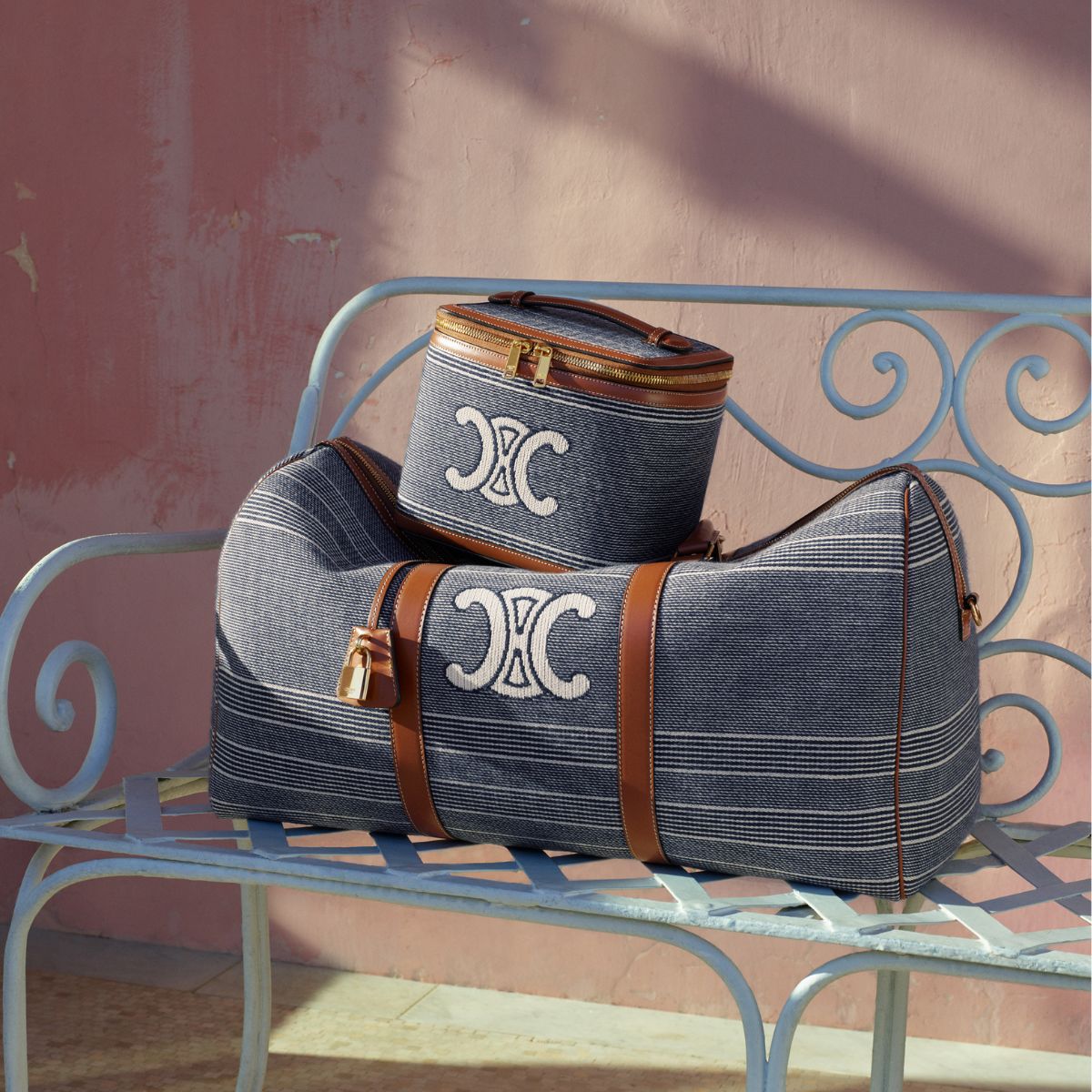 Céline's new Selfridges pop-up is an ode to summers on the French Riviera
Céline's new Selfridges pop-up is an ode to summers on the French RivieraA one-stop-shop for the ultimate holiday wardrobe
By Clementina Jackson
-
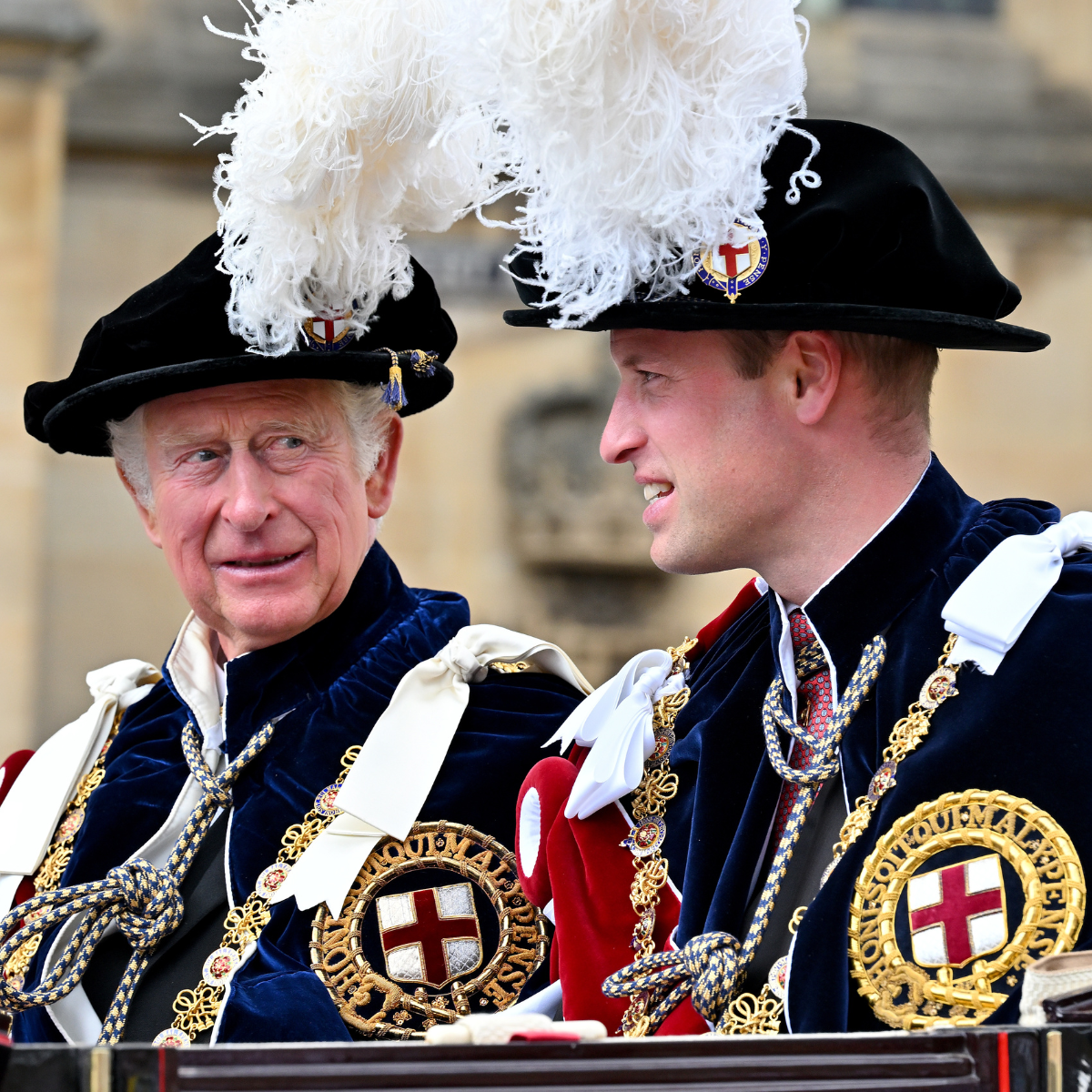 Why Prince William will attend the pope's funeral instead of King Charles
Why Prince William will attend the pope's funeral instead of King CharlesHe's representing his dad
By Iris Goldsztajn